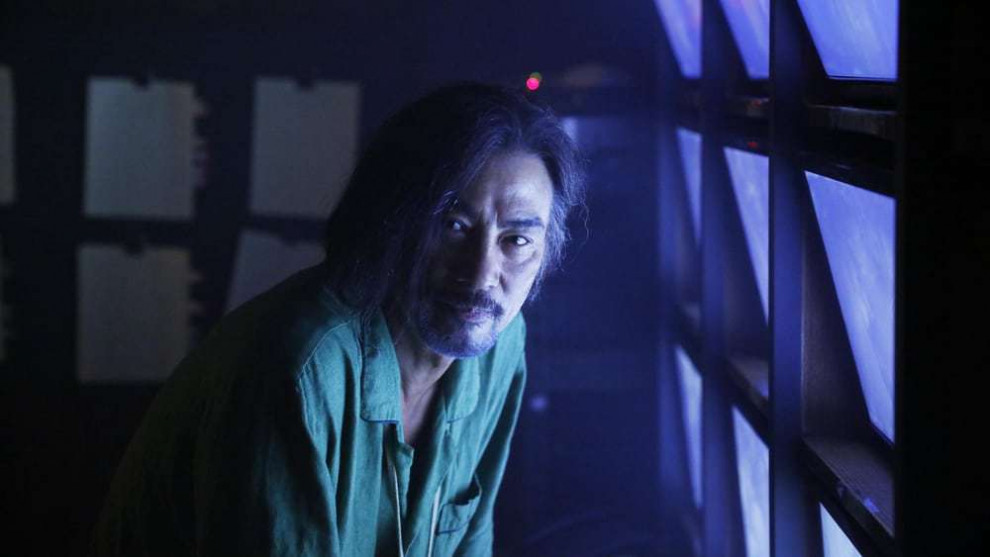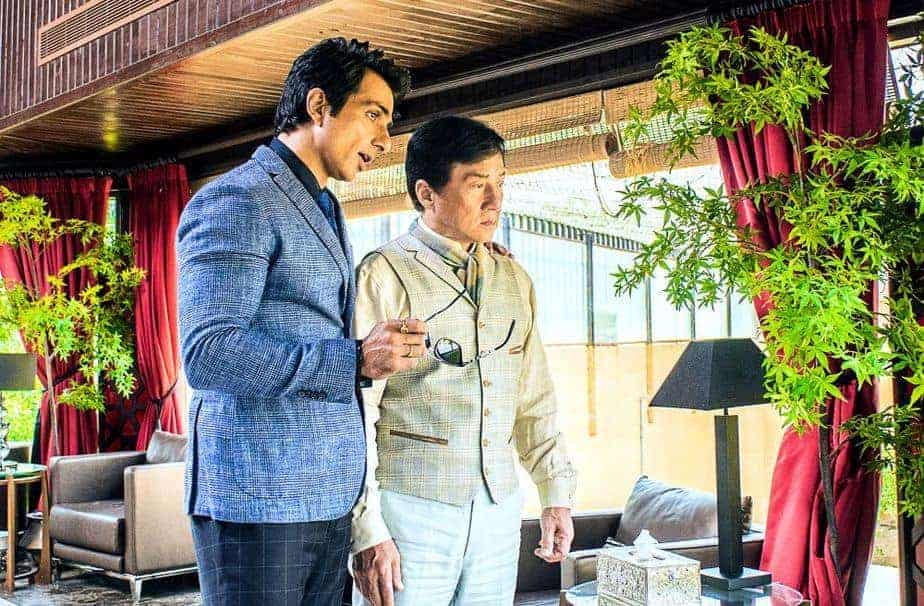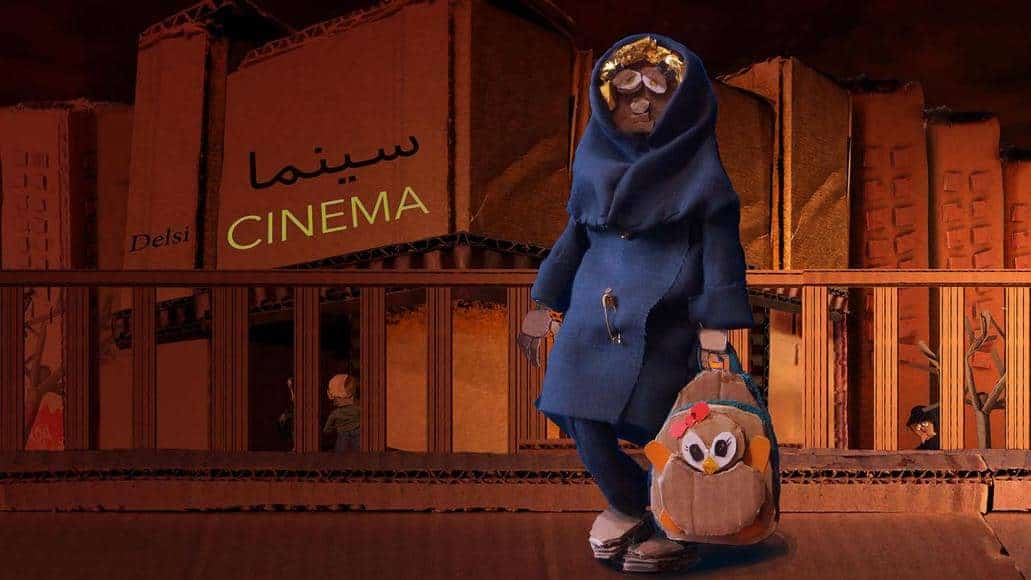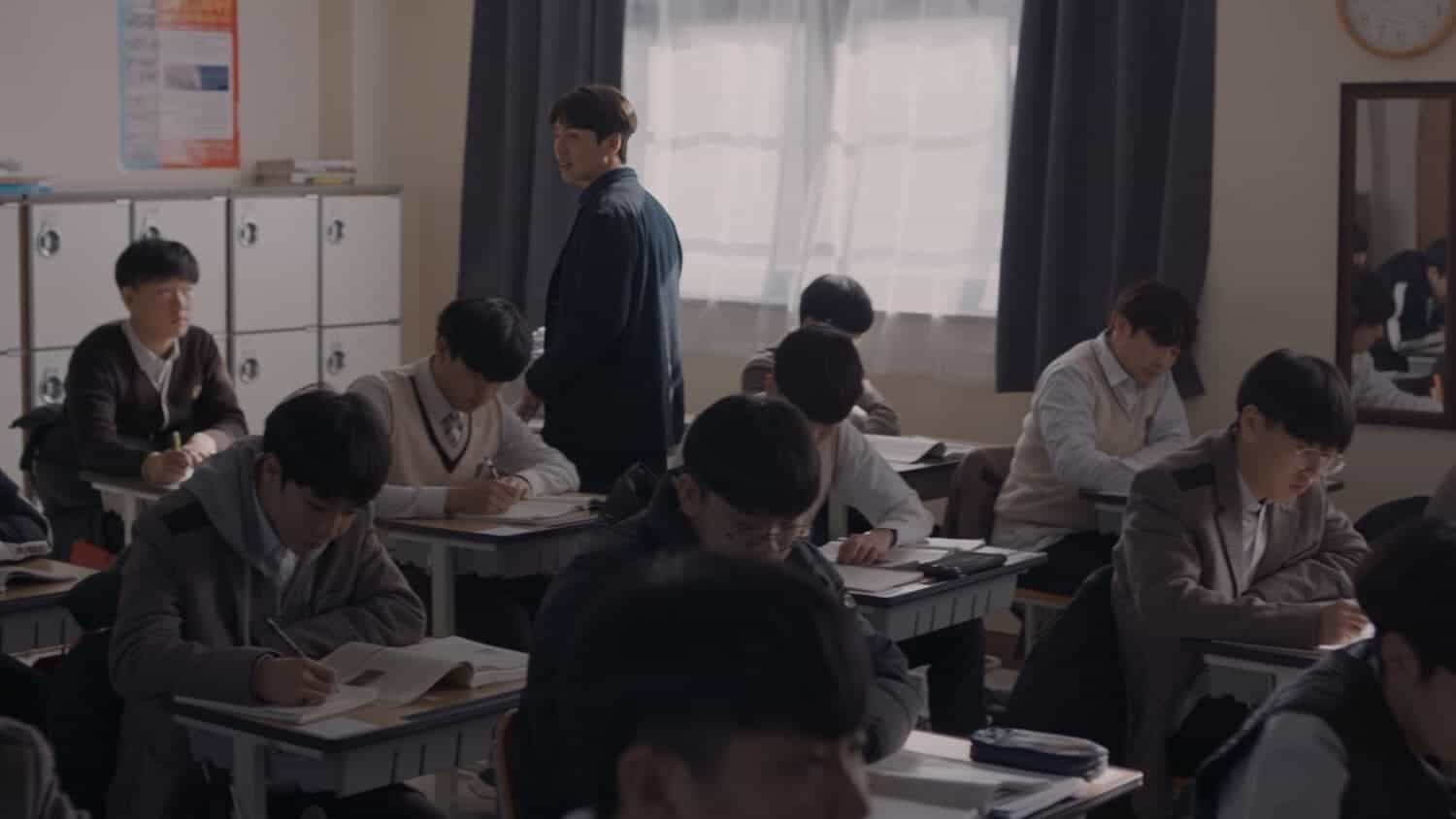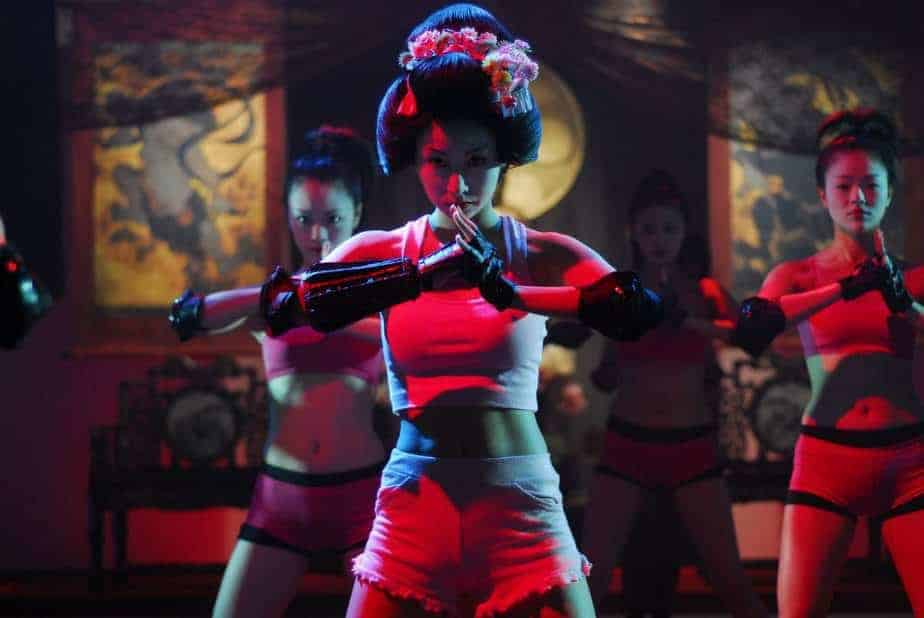Giddens Ko is definitely one of the most brilliantly creative minds of Taiwan (to say the least) and this movie, which is based on his homonymous novel, proves just that.
Buy This Title
The film begins in a police interrogation room, where a man with a crazy haircut, begins to confess a story that could only be characterized as paranoid. The Landlord claims he has inherited a building with studio apartments from a distant relative, so he became the proprietor of the building, renting the apartments out to tenants. In very “Sliver” fashion, his penthouse came with a room full of screens, receiving feedback from hidden cameras placed in every apartment. The Landlord begins by watching his tenants almost constantly. Mr. Wang Ming-kai and his fourth-grade daughter; Ms. Chen Min-hui, an office worker who uses her body for financial gain and advantages in the workplace; Mr. Chang Kuo-sheng, a physical education teacher who enjoys peeping on his neighbors and is infatuated with Ms. Chen; Bo-yan, a geeky college student obsessed with the idea of having superpowers; a gay couple, Kuo Li and Ling Hu; a mysterious woman named Ying-ru lives in the apartment directly under his penthouse. Eventually though, he decides to meddle in their lives, and soon all hell breaks loose.
Similarly to “Mon Mon Mon Monsters”, Giddens Ko's script plays with the borders of reality and fantasy, although this time, instead of embedding the latter to the former, he creates a world where every incident seems highly unlikely, thus making the audience wonder if what is being depicted on screen is reality or the dreams of a crazy man. Adam Tsuei implements this sense of disorientation brilliantly, through a very engaging narrative that unfolds a story in the most entertaining fashion, combining slapstick humor with CAT III aesthetics.

In this approach, he is benefited the most by Ian Lin's editing, who constantly changes the character on focus in a fashion that draws clear parallels between them and the Landlord's actions. The same artfulness applies to Jimmy Kwongwai Yu cinematography, who presents the sense of claustrophobia that permeates the movie and a story that is as far-fetched as possible, in magnificent fashion, maintaining a dreamy sense on almost every image. His presentation of each apartment is impressive, as he has staged them as carefully as the sets of a stage play. Lastly, the use of classical music intensifies the feeling that something is very wrong with this story.
Adam Tsuei did not pull any punches in the depiction of the story, since sex and extreme violence are quite frequent in the film, with the latter increasing significantly as the story progresses, and the Landlord's meddling reaches new heights. At the same time, he presents a number of social comments, particularly regarding human nature, through a rather philosophical approach.
The only fault I found in the narrative (the script if you wish) is that the story in the end becomes a bit too far-fetched. However, the fact that Tsuei seems not to take the film particularly seriously, erases even this minor fault.
Simon Yam is exceptional as the Landlord, as a man whose genius and will to act on his thought is only matched by his paranoia. Kaiser Chuang is also great as Chang Kuo-sheng, highlighting a man whose solitude has led him to extremes not far from the Landlord's. Ivy Shao as Ying-ru has a very fitting eerie presence, while Sophia Li gives a rather sultry performance as Chen Mun-hui.
“The Tenants Downstairs” is a great film that combines exploitation aesthetics with technical artfulness, in a very entertaining package that highlights both Adam Tsuei and Giddens Ko's prowess.


